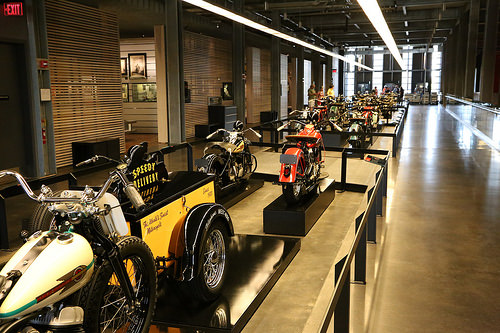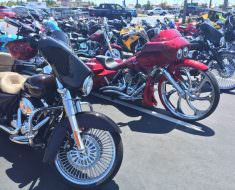Originally published: The New York Times
HONG KONG — President Trump has held up Harley-Davidson as a pillar of American manufacturing.
“We’re proud of you! Made in America, Harley-Davidson,” Mr. Trump said to the company’s leather-clad top executives in February as five of its motorcycles rumbled on the White House lawn.
But even as he praised Harley-Davidson’s all-American credentials, the company was busily building a new plant — in Thailand.
Harley-Davidson, an icon of American style and know-how, serves as a strong example of the nuanced economic realities that are pushing American companies to lay off workers at home and set up new factories overseas. Unions representing its workers accuse the company of cutting American jobs to hire lower-paid foreign workers. Yet global trade barriers and proximity to a growing base of new customers also play roles, complexities inherent in Mr. Trump’s ambition to overhaul trade policy.
Motorcycles made in the new factory — plans for which had not been previously disclosed — will be sold in Asia, not the United States, which its domestic plants will continue to serve, Harley-Davidson said.
“This is absolutely not about taking jobs out of the United States,” said Marc D. McAllister, a managing director of international sales at Harley-Davidson based in Singapore. “This is about growing our business in Asia.”
Still, unions representing its workers in the United States are not pleased.
“Why couldn’t we build them in the U.S. and export them?” asked Leo W. Gerard, the international president of the United Steelworkers, which represents Harley-Davidson workers at plants in Wisconsin and Missouri. He expressed concern that the company could be entering a “race to the bottom” in pursuit of lower labor costs.
“It’s a slap in the face to the U.S. workers who built an American icon”, said Robert Martinez Jr., the international president of the International Association of Machinists and Aerospace Workers. The union represents Harley-Davidson workers at plants including one in York, Pa., where the company plans to lay off over 100 workers.
Harley-Davidson argues that steep trade barriers in a high-growth market, not a desire to cut American jobs, drove the move. Southeast Asia offers rapid development and increasingly affluent spenders, but many countries in the region levy high tariffs on imported goods that make its motorcycles prohibitively expensive, the company says.
“Building bikes in the U.S. and exporting them does not get us the benefits that we’re talking about when it comes to the tariff barriers,” said Mr. McAllister, a 22-year veteran of the company.
Read more: The New York Times
Photo by North Bend Eric 







